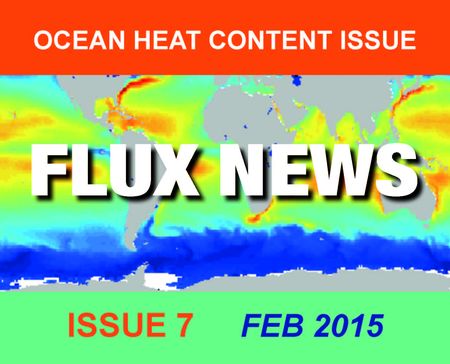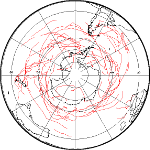
Sea-Air Interaction and Climate Laboratory (SAIL) develops research in ocean-atmosphere interaction and climate dynamics. Being a research unit of P.P. Shirshov Institute of Oceanology, Russian Academy of Science (IORAS) we are especially focused on the ocean's role in climate variability and change. However, our mandate is not only limited to the ocean research. We develop studies of atmospheric dynamics, cyclone activity, precipitation and temperature anomalies over the continents.
Our projects cover wide spectrum of environmental topics. They are funded by Ministry for Education and Science of Russian Federation, Russian Foundation for Basic Research, Russian Academy of Science, European Union (INTAS) and NATO. Our research is closely coordinated with many international projects developed under the umbrella of the World Climate Research Programme (WCRP) contributing to understanding climate variability and climate predictions. In our ongoing projects we closely co-operate with different institutions worldwide:
- Russian National Meteorological Center
- State Oceanographic Institute
- Institute of Geography, RAS (paleoclimate group)
- Institute of Numerical Mathematics, RAS
- Meteorological Institute of the University of Bonn
- IFM-GEOMAR (Kiel)
- LEGI (Grenoble)
- European Centre for Medium Range Weather Forecasts
- Scripps Oceanographic Institution
- Southampton National Oceanography Centre (NOC)
- Royal Netherlands Meteorological Institute (KNMI)
- Bureau Meteorology of Australia Research Centre (BMRC)
We also actively participate in teaching on both graduate and postgraduate levels at the Departments of Oceanography and Meteorology of Moscow State University.
Contact address: P.P.Shirshov Institute of Oceanology, RAS
36 Nakhimovsky ave, 117858 Moscow Russia
Phone: +7-499-1247928, 1247985
Fax: +7-499-1245983
Email: gul@sail.msk.ru


 Атлас
Атлас Southern Hemisphere
Southern Hemisphere
